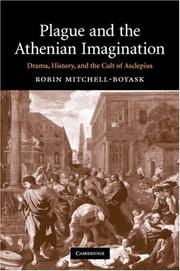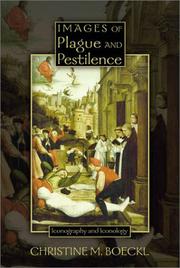| Listing 1 - 3 of 3 |
Sort by
|
Book
ISBN: 9782070314287 2070314286 Year: 2009 Volume: 167 Publisher: Paris : Gallimard,
Abstract | Keywords | Export | Availability | Bookmark
 Loading...
Loading...Choose an application
- Reference Manager
- EndNote
- RefWorks (Direct export to RefWorks)
Les malheurs du temps - la guerre, la famine ou la peste - nous sont connus grâce à des témoignages. Grandes plumes nobles, littérateurs ou gens sans qualité, ces écrits divers sont autant de sources pour les récits et les analyses des historiens. Leur usage pose pourtant problème. Dès le XVIIe siècle, en effet, inscrire un témoignage sur le papier faisait participer à une culture écrite orientée par la circulation de débats, de normes et de discours constitutifs de ce qui commençait à devenir la littérature. Ce livre raconte les " malheurs du temps " à partir de documents, récits de peste, lettres d'administrateurs, journaux, sermons, poèmes. Chemin faisant, il étudie la mise en écriture des expériences vécues et l'utilisation des textes littéraires par les historiens. Les auteurs rouvrent ainsi de nombreux dossiers historiographiques : par exemple celui des " Mémoires du XVIIIe siècle ", artificiellement érigés par l'histoire littéraire en conservatoire de l'identité et des valeurs nobiliaires ; celui de la terrible famine de 1662 ; celui des écrits paysans mis au service de l'histoire du siècle des Lumières ; et bien évidemment celui de la composante émotionnelle des anciennes mises en récit du malheur, qui n'est pas sans effet sur notre propre émotion face à ces témoignages écrits.
Historiography --- Civil war in literature --- War in literature. --- Plague in literature. --- Famines in literature --- Autobiography. --- Historiographie --- Guerre civile dans la littérature --- Guerre dans la littérature --- Peste dans la littérature --- Famines dans la littérature --- Autobiographie --- France --- Historiography. --- Littérature --- --Histoire --- --Historiographie --- --sources --- --Littérature --- --Historiography --- Guerre civile dans la littérature --- Guerre dans la littérature --- Peste dans la littérature --- Famines dans la littérature --- --Historians --- Literature and history --- Literature --- Appraisal of books --- Books --- Evaluation of literature --- Criticism --- Literary style --- History and literature --- History and poetry --- Poetry and history --- History --- Historiographers --- Scholars --- History and criticism --- Appraisal --- Evaluation --- Historians --- Histoire --- Littérature comparée --- Littérature et histoire --- Témoignage historique --- Dans la littérature --- Thèmes, motifs

ISBN: 9780521873451 0521873452 9780511482304 9780521296373 0511378041 9780511378935 0511378939 9780511378041 9786611243470 661124347X 0511482302 1107181194 9781107181199 1281243477 9781281243478 0511377169 9780511377167 0511376227 9780511376221 0511374690 9780511374692 0521296374 Year: 2008 Publisher: Cambridge ; New York : Cambridge University Press,
Abstract | Keywords | Export | Availability | Bookmark
 Loading...
Loading...Choose an application
- Reference Manager
- EndNote
- RefWorks (Direct export to RefWorks)
The great plague of Athens that began in 430 BCE had an enormous effect on the imagination of its literary artists and on the social imagination of the city as a whole. In this 2007 book, Professor Mitchell-Boyask studies the impact of the plague on Athenian tragedy early in the 420s and argues for a significant relationship between drama and the development of the cult of the healing god Asclepius in the next decade, during a period of war and increasing civic strife. The Athenian decision to locate their temple for Asclepius adjacent to the Theater of Dionysus arose from deeper associations between drama, healing and the polis that were engaged actively by the crisis of the plague. The book also considers the representation of the plague in Thucydides' History as well as the metaphors generated by that representation which recur later in the same work.
Asklepios (Greek deity) --- Plague in literature. --- Asclépios (Divinité grecque) --- Peste dans la littérature --- Asclépios (Divinité grecque) --- Peste dans la littérature --- Drama --- Greek drama (Tragedy) --- Literature and society --- Plague in literature --- Drama, Modern --- Plays --- Stage --- Literature --- Dialogue --- Greek drama --- Literature and sociology --- Society and literature --- Sociology and literature --- Sociolinguistics --- Cult --- Social aspects&delete& --- History --- History and criticism --- Themes, motives&delete& --- Philosophy --- Social aspects --- Dramas --- Dramatic works --- Playscripts --- Tragédie grecque --- Littérature et société --- Théâtre (Genre littéraire) --- Cult. --- History and criticism. --- Themes, motives --- Culte --- Histoire et critique --- Thèmes, motifs --- Aspect social --- Aesculapius (Roman deity) --- History. --- Asklepios --- Asclepius --- Asclepio --- Ασκληπιος --- Asclepiu --- Asklepi --- Асклепій --- Asklepiĭ --- Асклепий --- Asklepije --- Asclepi --- Æskulap --- Asklepio --- Asclépios --- Esculapio --- אסקלפיוס --- Asḳlepiyos --- Asḳlepyos --- Aesculapius --- Asklēpijs --- Asklepijas --- Asklepijus --- Eskulapas --- Aszklépiosz --- Асклепиј --- Asklepij --- Ескулап --- Eskulap --- アスクレーピオス --- Asukurēpiosu --- Asklepiy --- Asklepiu --- Асклепије --- 阿斯克勒庇俄斯 --- Asikeleibiesi --- Eshmun --- Arts and Humanities --- Asclépios (divinité grecque) --- Esculape (divinité greco-romaine)

ISBN: 0943549728 094354985X 9780943549729 0271091185 Year: 2000 Volume: 53 Publisher: Kirksville, Mo. Truman State University Press
Abstract | Keywords | Export | Availability | Bookmark
 Loading...
Loading...Choose an application
- Reference Manager
- EndNote
- RefWorks (Direct export to RefWorks)
History of Europe --- Thematology --- Iconography --- Pest in de kunst --- Pest in de literatuur --- Peste dans l'art --- Peste dans la littérature --- Plague in art --- Plague in literature --- Plague in art. --- Plague in literature. --- Yersinia Infections --- Art --- Literature --- Humanities --- Enterobacteriaceae Infections --- Gram-Negative Bacterial Infections --- Medicine in Literature --- Plague --- Medicine in Art --- Bacterial Infections --- Bacterial Infections and Mycoses --- Diseases --- Visual Arts --- Art, Architecture & Applied Arts --- Visual Arts - General --- Bacterial Infection --- Infection, Bacterial --- Infections, Bacterial --- Science in Art --- Art, Medicine in --- Art, Science in --- Arts, Medicine in --- Arts, Science in --- Medicine in Arts --- Science in Arts --- in Art, Medicine --- in Art, Science --- in Arts, Medicine --- in Arts, Science --- Black Death --- Black Plague --- Septicemic Plague --- Bubonic Plague --- Meningeal Plague --- Pneumonic Plague --- Pulmonic Plague --- Black Deaths --- Black Plagues --- Death, Black --- Deaths, Black --- Meningeal Plagues --- Plague, Black --- Plague, Bubonic --- Plague, Meningeal --- Plague, Pneumonic --- Plague, Pulmonic --- Plague, Septicemic --- Plagues, Black --- Plagues, Meningeal --- Plagues, Pneumonic --- Plagues, Pulmonic --- Plagues, Septicemic --- Pneumonic Plagues --- Pulmonic Plagues --- Septicemic Plagues --- Science in Literature --- Literature, Medicine in --- Literature, Science in --- in Literature, Medicine --- in Literature, Science --- Infections, Gram-Negative Bacterial --- Bacterial Infections, Gram-Negative --- Bacterial Infection, Gram-Negative --- Bacterial Infections, Gram Negative --- Gram Negative Bacterial Infections --- Gram-Negative Bacterial Infection --- Infection, Gram-Negative Bacterial --- Infections, Gram Negative Bacterial --- Infections, Enterobacteriaceae --- Infections, Enterobacterial --- Enterobacterial Infections --- Enterobacteriaceae Infection --- Enterobacterial Infection --- Infection, Enterobacteriaceae --- Infection, Enterobacterial --- Literatures --- Arts --- Infections, Yersinia --- Infection, Yersinia --- Yersinia Infection
| Listing 1 - 3 of 3 |
Sort by
|

 Search
Search Feedback
Feedback About UniCat
About UniCat  Help
Help News
News